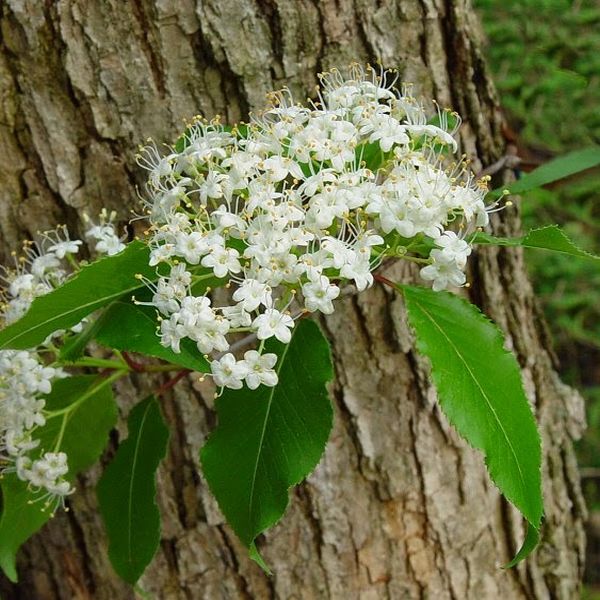Black haw is a shrub that is native to the woodlands of central and southern North America. People use the root bark and its extracts to make medicine.
Black haw is used for increasing urine (as a diuretic) to relieve fluid retention; and for treating diarrhea, spasms, and asthma. It is also used as a tonic.
Women use black haw for treating menstrual cramps and spasms of the uterus after childbirth; and for preventing miscarriage.
Black haw has been used traditionally for problems related to the female reproductive tract. It acts as a general antispasmodic that may relax skeletal muscle as well, but is particularly effective on the uterus. As such, it is a potential agent to be included in the treatment of threatened miscarriage, menstrual cramps, false labor, and the afterpains of childbirth . The antispasmodic properties of black haw are also reportedly useful for colic , bladder spasms, cramping pain in the bile ducts, diarrhea , and heavy bleeding during menopause . Black haw may also have some ability to lower high blood pressure.
As an herbal remedy, the strong astringent and anti-spasmodic effects of the black haw are used specifically in the treatment of pain associated with the menstrual cycle in affected women. Many other gynecological disorders and conditions are also treated using the remedies derived from the black haw bark, thus the practices of the 19th-century are still followed by many herbalist. Some of the conditions treated using the bark include excessive bleeding during menopause in women, the prolapse of the uterus, the presence of morning sickness during pregnancy, and the threat or signs of miscarriage in pregnant women. The presence of colic or the presence of cramping pain along the bile ducts, pain along the digestive tract and the urinary tract are also typically treated using the black haw herb, the strong anti-spasmodic action of the plant comes into play and helps alleviate such physical conditions.
One of the historical uses of black haw was for the relief of asthma . Evidence from contemporary clinical studies does not support this use, although black haw’s activity as a smooth muscle relaxant could theoretically relieve bronchoconstriction. On the other hand, some components of black haw, particularly the salicylates, have the potential to trigger an asthmatic reaction in sensitive individuals.
Black haw contains chemicals called salicylates. There is some concern that these salicylates could trigger an allergic reaction in people with asthma or aspirin allergies. People who are allergic to aspirin could theoretically have a reaction to black haw, as one of its components is a salicylate (compound related to aspirin). Bleeding time may also be prolonged as a result in patients who take high chronic doses of black haw. Patients with a history of kidney stones should not use this herb, as the oxalic acid it contains could increase the risk of a recurrence of the disorder.
Some sources say that black haw should not be used in pregnancy. Women should consult a health care practitioner experienced in the use of natural remedies for advice on the use of black haw for the prevention of miscarriage or other possible indications for pregnancy.
Post time: Jul-17-2020
